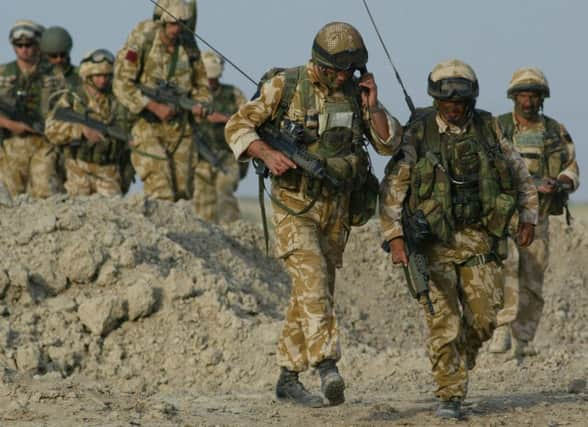Readers' letters - July 25


With the Middle East in flames, Britain a more dangerous place than it was, and terrorism across the region greater, Chilcot would not have happened without the anti-war movement.
The establishment have us believe that this is the end of it, and Iraq was a one-off.
Advertisement
Hide AdAdvertisement
Hide AdSince the end of that awful conflict, we have invaded Afghanistan, bombed Libya, created death and destruction throughout the Middle East and unleashed these Islamic insurgents.
Now we are bombing Iraq again, as well as Syria, and backing Saudi Arabia in their disgusting war on Yemen.
Saudi air strikes have pushed Yemen into crisis with 2,000 children killed or injured, with evidence that bombing have repeatedly violated international law.
Why do we arm them in the first place? Time and time again this Government ignores its own rules by promoting weapons to war criminals and human rights abusers around the world, fuelling conflicts wherever they may be,
Advertisement
Hide AdAdvertisement
Hide AdIraq was not the end but the start, so a message to the people of Britain, we need to understand that war is not the solution to the problems the world faces in the 21st Century.
Royston Jones, address supplied
Trident’s not the answer
The only reason to keep Trident, in my view, is to keep jobs but otherwise I wonder, is it a waste of money and will it really stop us being targeted?
The biggest threat today appears to be psychopaths who are deranged and filled with a lethal combination of lust for power and hatred – do you think these wannabe serial killers will stop because there is a nuclear deterrent?
These evil monsters are not logical, that is what is most frightening.
Advertisement
Hide AdAdvertisement
Hide AdIf they see a nuclear deterrent, they’ll welcome the idea of being blown up as ‘martyrs’.
We live in an age of austerity (so I am told by politicians) so how can we afford the astronomical cost of £31bn?
If we opted against Trident, we can redeploy those whose employment is affected, so no one becomes unemployed.
We would still have money left over for hospitals, libraries, public services and so on.
Advertisement
Hide AdAdvertisement
Hide AdOf course we need increased security, especially in this dark age of irrational hatred, but I don’t think Trident is the answer.
Jane, Lancashire
Forget Scottish independence
I can suggest two reasons why Nicola Sturgeon can forget her dream of an independent Scotland. One, the EU would never accept Scotland by itself since this would just encourage every rebellious EU region to press for separate membership.
Two, in a second Scottish referendum the canny Scots would be highly unlikely to choose independence with (or without) an unsympathetic EU over staying with good old ‘soft-touch’ England.
N Pearson via email
Germ fears over NHS uniforms
We can’t take flowers or magazines into hospital because of germs but nurses can wear their uniforms going to work on dirty buses, sitting next to dirty people – and then they go into the wards dealing with patients.
Advertisement
Hide AdAdvertisement
Hide AdThen it’s the reverse, travelling home direct from the wards, in their uniforms, in close contact with people, for instance on public transport.
Does something sound a bit wrong here? Doesn’t anybody have any authority?
Concerned
Italy’s debt a threat to EU
We have become used to hearing that Brexit will likely be the cause of the possible break-up of the EU, where many other EU member countries may be persuaded to call similar referenda from their own citizenry on their continued membership.
This, it is thought, could have a similar effect to that now being played out by the UK.
Advertisement
Hide AdAdvertisement
Hide AdHowever, there is a much more immediate and potent threat to the long-term continued existence of the EU. This is posed by EU member Italy, whose government is struggling with over 400 billion Euros of bad debt.
It seems unlikely that the EU Central Bank will be able to bail them out without causing terminal damage to the rest of the EU banking sector.
If this situation continues unresolved, the UK will be glad we left the EU when we did.
However, technically we are still EU members until article 50 of the Lisbon Treaty is activated by our government, but not until the end of the year we are now being told.
We are certainly living in interesting times!
E J Tilley
Chorley